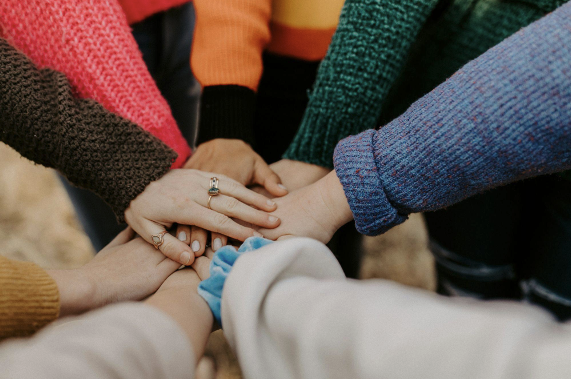Addiction recovery can feel like an overwhelming journey, but it doesn’t have to be taken alone. One of the most valuable and powerful tools in addiction treatment is group therapy. While individual therapy plays an essential role in addressing personal struggles, group therapy fosters a unique sense of community, support, and shared healing that can significantly enhance the recovery process.

Group therapy is a therapeutic approach where individuals struggling with addiction meet regularly in a group setting with a trained therapist or counselor. The group typically consists of people who are facing similar challenges related to addiction and recovery. Sessions focus on sharing experiences, discussing coping strategies, and offering support to one another. Group therapy can be used in inpatient and outpatient treatment settings and is often combined with other therapeutic modalities, such as individual counseling or family therapy.
One of the most profound benefits of group therapy is the sense of community it creates. Addiction can be an isolating experience, with individuals often feeling as though they are alone in their struggles. In group therapy, participants realize that they are not alone. They connect with others who share similar experiences and challenges, which fosters a sense of belonging and reduces feelings of isolation.
Having a supportive network is crucial for maintaining long-term sobriety. Group therapy allows individuals to build meaningful relationships with others who understand their struggles and can offer encouragement and empathy.
In group therapy, participants share their personal stories, which can be incredibly valuable for their healing process. By listening to others’ experiences, individuals can gain new perspectives on their journey, learn coping strategies, and discover different ways of handling challenges. The exchange of ideas, emotions, and experiences can be eye-opening, helping participants feel empowered and less trapped in their struggles.
Hearing about others’ successes and setbacks also provides a reality check, reminding everyone that recovery is not a linear process but requires patience, effort, and perseverance. Group members learn from each other’s mistakes and triumphs, building resilience and insight to serve them throughout their recovery.
Addiction often leads to the deterioration of healthy communication and social skills. Individuals may become withdrawn, distrustful, or avoidant, making building and maintaining relationships difficult. Group therapy offers a safe and supportive environment for individuals to practice and improve their communication skills.
Through regular interactions, participants learn how to express their feelings, listen actively, and offer constructive feedback. These social skills help in the recovery process and lay the foundation for healthier relationships in the future. Effective communication is essential for navigating life outside of treatment, where individuals must interact with family, friends, and colleagues.
Group therapy helps individuals develop a sense of accountability for their actions. When participants share their progress, setbacks, and goals with others, the group holds them accountable. This sense of responsibility encourages participants to stay focused on their recovery goals and continue making positive changes.
Accountability in a group setting can be incredibly motivating. When someone shares their success or the challenges they’ve overcome, it inspires others to keep pushing forward in their recovery journey. Additionally, group members often provide valuable feedback and support to help one another stay on track.
Learning to express emotions healthily is a crucial part of healing in addiction recovery. Group therapy offers a safe space where individuals can express their feelings without fear of judgment. Participants often open up about difficult emotions, such as shame, guilt, or fear, and discover that others have experienced similar feelings. This shared vulnerability helps break down emotional barriers and fosters a sense of trust and solidarity.
Opening up in group therapy can also provide relief. By sharing painful or difficult experiences, individuals release pent-up emotions and gain perspective from others who may have faced similar challenges. The experience of being heard and understood can be incredibly cathartic and healing.
Group therapy is an effective tool for preventing relapse during the recovery process. The support, encouragement, and camaraderie that participants experience can act as a powerful deterrent to returning to old habits. Group members often remind one another of the importance of staying sober, offering motivation and inspiration to keep moving forward, especially during tough moments when the temptation to relapse may feel overwhelming.
Additionally, group therapy helps participants identify triggers and develop coping strategies. By discussing relapse prevention techniques and sharing experiences, individuals better understand how to handle stressful situations and avoid situations that could lead to relapse.
One of the most profound outcomes of group therapy is the development of empathy and compassion. Listening to others’ struggles and successes fosters a deep sense of understanding. Participants can see beyond their addiction and develop a genuine concern for the well-being of others in the group.
Empathy is helpful for connecting with others in group therapy and crucial for personal growth. As individuals begin to show compassion for others, they are more likely to show compassion for themselves—an important aspect of the healing process. Addiction recovery involves accepting oneself, flaws and all, and learning to treat oneself with kindness and understanding.
Group therapy is an essential component of many addiction treatment programs because it offers a holistic approach to recovery. It addresses the mental, emotional, and social aspects of addiction, all of which are critical to achieving long-term sobriety. The combination of shared experiences, mutual support, and personal growth makes group therapy a powerful tool for healing.
Moreover, group therapy can be particularly beneficial in overcoming the isolation that often accompanies addiction. The bonds formed in therapy are helpful during treatment and can continue to provide support long after the program ends.

Group therapy offers numerous benefits for individuals in addiction recovery, from fostering a supportive community to promoting accountability, emotional expression, and empathy. It provides a unique opportunity for individuals to learn from others, gain perspective, and grow together on the path to sobriety. Whether in inpatient or outpatient treatment, group therapy can play an integral role in healing, ensuring that individuals are supported in their recovery and empowered to succeed long-term.
If you or a loved one is considering addiction treatment, be sure to explore the benefits of group therapy as part of a comprehensive recovery plan. The connections made in group therapy can be life-changing and may just be the key to achieving lasting recovery.